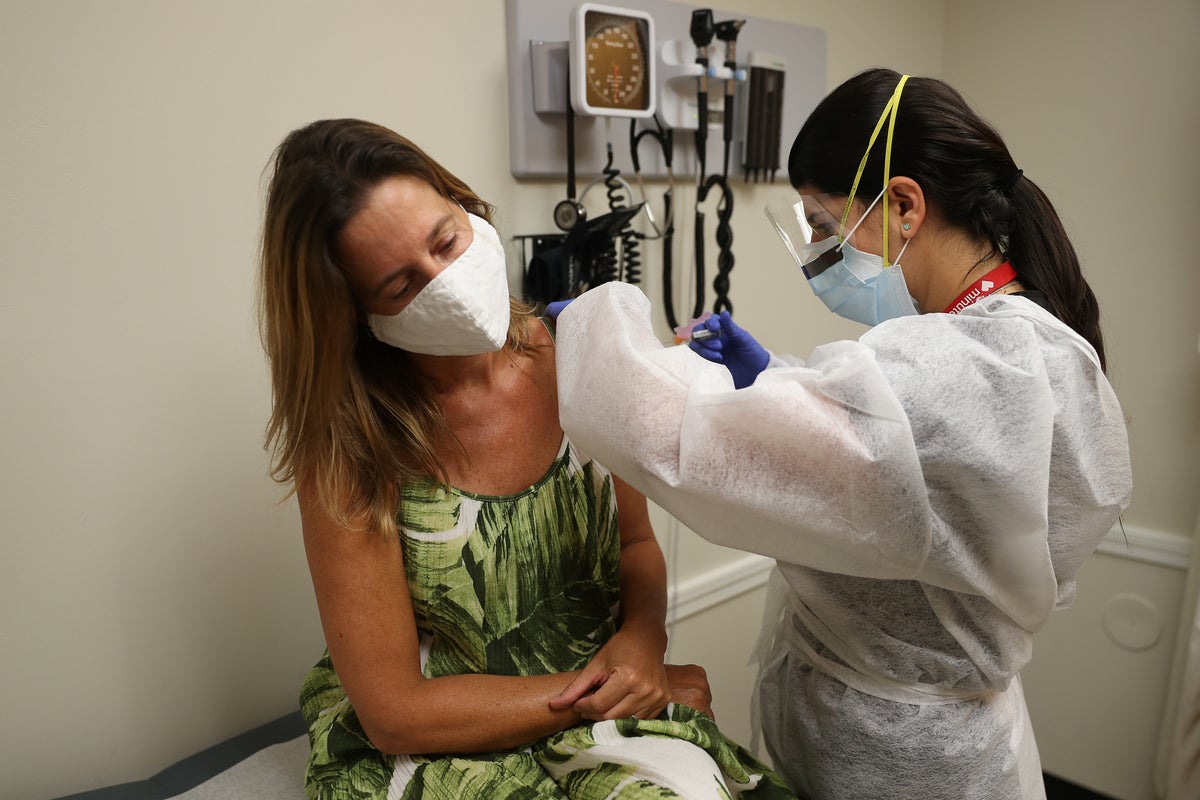Politics
Flu Season Approaches: Vaccination Urged for Five Key Groups

As flu season approaches, public health authorities are urging vaccination, particularly for five vulnerable groups. With the onset of autumn, the flu virus is expected to affect millions globally, posing risks of severe illness and hospitalization. The Centers for Disease Control and Prevention (CDC) recommends that everyone aged six months and older receive the annual flu vaccine to mitigate these risks.
Public health experts are closely monitoring this year’s flu season, which could see a moderate number of cases in the United States. Early indicators suggest that the flu season in the Southern Hemisphere has been more severe than in previous years. Typically, data from the Southern Hemisphere helps forecast trends in the Northern Hemisphere. As a result, health officials anticipate a significant flu season ahead, particularly affecting children, older adults, and individuals with chronic health conditions.
Importance of Vaccination
The flu vaccine for the 2025-2026 season is now available, with manufacturers beginning shipments in July and August to ensure accessibility by September. This year’s vaccine is designed to protect against three main strains of the influenza virus: an A (H1N1) virus, an A (H3N2) virus, and a B/Victoria virus. Despite the virus’s frequent mutations, vaccination remains the most effective way to prevent severe illness.
The flu shot typically reduces the need for medical intervention by approximately 50%, helping to lessen the severity of illness and the likelihood of hospitalization. Additionally, vaccination plays a crucial role in curbing the spread of the virus within communities. It is important to note that individuals can receive the flu vaccine simultaneously with other vaccines, such as those for COVID-19, RSV, and pneumonia, without compromising their effectiveness.
Who Should Get Vaccinated?
The CDC emphasizes that vaccination is especially critical for specific groups, including young children, the elderly, pregnant women, and individuals with underlying health conditions. Those who may be healthy and rarely suffer from illness are still encouraged to receive the vaccine, as it helps protect vulnerable populations.
Aside from vaccination, maintaining good hygiene practices can further reduce the transmission of influenza and other respiratory viruses. Public health officials stress the importance of staying informed and adopting healthy habits to protect oneself and others.
Flu season, while routine, does not have to lead to severe health consequences. By prioritizing vaccination and practicing preventive measures, individuals can contribute to the overall health and safety of their communities. If you have not yet received your flu shot, now is the time to act and safeguard yourself and those you care about during this flu season.
-

 Health2 months ago
Health2 months agoNeurologist Warns Excessive Use of Supplements Can Harm Brain
-

 Health2 months ago
Health2 months agoFiona Phillips’ Husband Shares Heartfelt Update on Her Alzheimer’s Journey
-

 Science2 weeks ago
Science2 weeks agoBrian Cox Addresses Claims of Alien Probe in 3I/ATLAS Discovery
-

 Science2 weeks ago
Science2 weeks agoNASA Investigates Unusual Comet 3I/ATLAS; New Findings Emerge
-

 Science2 weeks ago
Science2 weeks agoScientists Examine 3I/ATLAS: Alien Artifact or Cosmic Oddity?
-

 Entertainment4 months ago
Entertainment4 months agoKerry Katona Discusses Future Baby Plans and Brian McFadden’s Wedding
-

 Science1 week ago
Science1 week agoNASA Investigates Speedy Object 3I/ATLAS, Sparking Speculation
-

 World2 months ago
World2 months agoCole Palmer’s Cryptic Message to Kobbie Mainoo Following Loan Talks
-

 Entertainment3 months ago
Entertainment3 months agoEmmerdale Faces Tension as Dylan and April’s Lives Hang in the Balance
-

 Science1 week ago
Science1 week agoNASA Scientists Explore Origins of 3I/ATLAS, a Fast-Moving Visitor
-

 Entertainment4 months ago
Entertainment4 months agoLove Island Star Toni Laite’s Mother Expresses Disappointment Over Coupling Decision
-

 Entertainment2 months ago
Entertainment2 months agoMajor Cast Changes at Coronation Street: Exits and Returns in 2025









